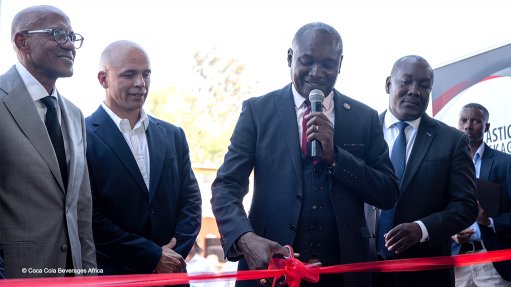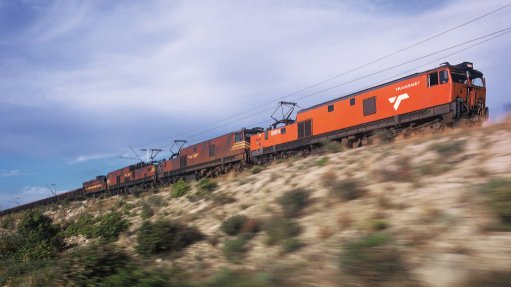South Africa must recover State capacity to drive inclusive growth, seize green opportunities
Two broad challenges – collapsing State capacity and spatial exclusion – have led to South Africa's economy being defined by stagnation and exclusion and the country needs a strategy to recover State capacity.
Otherwise, slowing growth and increasing exclusion will continue to worsen, the 'Growth through inclusion in South Africa' report published by Harvard University's Harvard Growth Lab shows.
Collapsing State capacity is the predominant driver of South Africa’s weakening economic performance and is at the heart of intensifying macroeconomic stress. The systems of electricity, rail, ports, telecoms, security and water have been deteriorating dramatically, and this has had an enormous impact on the ability of the economy to produce, the report outlines.
State capacity has collapsed across many government functions that are essential for a functioning economy. Critical network industries, including electricity, transport infrastructure and services, security and water and sanitation have experienced major deteriorations over the past 15 years, the report notes.
The collapse of State capacity increases exclusion, including through breakdowns in connecting infrastructure across the country. In the presence of these supply-side problems, demand-side instruments of fiscal policy have not and cannot improve outcomes, the researchers say.
"These issues have caused the South African economy to lose its historic sources of comparative advantage, including its cheap and reliable electricity, and have kept the labour, talents and capabilities of far too many South Africans disconnected," they emphasise.
The underlying capabilities to achieve sustained growth by leveraging the full capability of its people, companies, assets, and knowhow remain underused, they note.
Historical spatial exclusion in urban and rural areas, which has enormous consequences for the potential of the economy, has undermined the development of denser and more inclusive cities, thereby leaving many South Africans forced to choose between formal housing far from opportunity and informal housing closer to opportunity.
"Effective inclusion of the marginalised black majority will require direct responses to spatial exclusion through urban and housing policies that will allow for more inclusive cities, as well new strategies to bridge knowhow between the productive economy and rural areas of former homelands, which remain largely excluded," the researchers say.
Additionally, in 2022, South Africa's debt interest payments represented 4.8% of gross domestic product and 17% of total revenues, limiting the capacity of the government to use its revenues to address other needs.
"South Africa needs to regain its investment grade if it wants to be competitive in the kinds of growth opportunities that are on the horizon," the report states.
However, current reform momentum is encountering systemic, deep-seated and underlying issues of political gridlock, ideologies that limit the full use of society's capabilities, systems of political patronage, and an over-burdening of State organisations with goals beyond their core missions and capabilities, the two-year applied research project report outlines.
Additionally, with unemployment and poverty high, there have been large pressures for social transfers and public employment.
"Grants are more palliative than curative. They are about redistribution more than inclusion. Grants and social transfers compensate people and companies for their exclusion, rather than include them in the productive economy. They do not create the basis to increase sustainable employment in South Africa," the researchers note.
Such responses are secondary to policies that focus on bolstering the supply side by empowering more South Africans with the ability to participate in the productive process, the researchers emphasised.
"For the economy to function and leverage all the human capabilities, productive knowledge, physical assets and natural endowments that South Africa has, government needs to work.
"The path to inclusive growth must include a recovery of State capacity and must empower all members of society with the ability to contribute and exercise choice."
Spatial inclusion is central to this, as people must have the ability to choose housing in places where labour markets are accessible, where entrepreneurship is feasible and where access to markets, technology and finance are facilitated, the report notes.
INCLUSIVE GREEN GROWTH
Green growth opportunities in South Africa are key potential growth drivers and are of special importance to recovering and rebuilding South Africa’s comparative advantage, the loss of which had enormous implications for the country's competitiveness in key export industries, such as mining and mineral processing.
South Africa has vast opportunities to produce and benefit from renewable energy, and widespread potential to supply many of the minerals, goods, services and innovations that the world will need to decarbonise at the scale needed to address global climate change.
"South Africa has a role to play in a decarbonising world and can leverage global decarbonisation to build new comparative advantages. South Africa can leverage its ample solar and wind resources to benefit from shifts in global demand in a world that is trying to decarbonise.
"The country has many opportunities to benefit economically from global decarbonisation. It has immense potential to supply the goods, services, and knowhow that a world that wants to decarbonise will need," the report states.
The researchers provide three strategies that could position South Africa well to capture global demand, namely making the enablers of global decarbonisation, making green versions of grey products for the global market, and exporting green knowhow.
"Achieving this potential requires addressing the issues of collapsing State capacity and spatial exclusion along with targeted strategies in each of these three dimensions," the report emphasises.
Comments
Press Office
Announcements
What's On
Subscribe to improve your user experience...
Option 1 (equivalent of R125 a month):
Receive a weekly copy of Creamer Media's Engineering News & Mining Weekly magazine
(print copy for those in South Africa and e-magazine for those outside of South Africa)
Receive daily email newsletters
Access to full search results
Access archive of magazine back copies
Access to Projects in Progress
Access to ONE Research Report of your choice in PDF format
Option 2 (equivalent of R375 a month):
All benefits from Option 1
PLUS
Access to Creamer Media's Research Channel Africa for ALL Research Reports, in PDF format, on various industrial and mining sectors
including Electricity; Water; Energy Transition; Hydrogen; Roads, Rail and Ports; Coal; Gold; Platinum; Battery Metals; etc.
Already a subscriber?
Forgotten your password?
Receive weekly copy of Creamer Media's Engineering News & Mining Weekly magazine (print copy for those in South Africa and e-magazine for those outside of South Africa)
➕
Recieve daily email newsletters
➕
Access to full search results
➕
Access archive of magazine back copies
➕
Access to Projects in Progress
➕
Access to ONE Research Report of your choice in PDF format
RESEARCH CHANNEL AFRICA
R4500 (equivalent of R375 a month)
SUBSCRIBEAll benefits from Option 1
➕
Access to Creamer Media's Research Channel Africa for ALL Research Reports on various industrial and mining sectors, in PDF format, including on:
Electricity
➕
Water
➕
Energy Transition
➕
Hydrogen
➕
Roads, Rail and Ports
➕
Coal
➕
Gold
➕
Platinum
➕
Battery Metals
➕
etc.
Receive all benefits from Option 1 or Option 2 delivered to numerous people at your company
➕
Multiple User names and Passwords for simultaneous log-ins
➕
Intranet integration access to all in your organisation


















